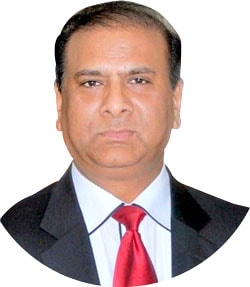Importance of law education in Pakistan
LAW is a system of rules enforced through social or governmental institutions to regulate behaviour. The law shapes politics, economics, history and society in various ways and serves as a mediator of relations between people.
Law’s scope can be divided into 2 domains. Public law concerns government and society, including constitutional law, administrative law, and criminal law.
On the other hand, private law deals with legal disputes between individuals and/or organizations in areas such as contracts, property, torts/delicts and commercial law. This difference is stronger in civil law countries, mainly those with a separate system of administrative courts.
In this world where we live, there is about 49% women and 51% men, and same is the case with Pakistan.
We have a greater number of women than men and it is our duty to protect the right of women and take a stand for them. To encourage women empowerment and provide quality Law education in Pakistan, there is an Institute in Lahore, Model Town, working under the name of Lahore School of Law.
The education of Law is vital for the citizens living in a country. The inhabitants of Pakistan are in a dire need of law education in schools, colleges, offices, universities, and work places.
The country has been facing a legal education crisis for a very long time. There is a lack of institutional consensus about the entrance examinations for bar and law schools. Also, there is some confusion about the curriculum and method of teaching, and the method of final examination, etc.
For years, the relevant institutions (HEC, Pakistan Bar Council), the government and the SJC (Supreme Judicial Council) have ignored the importance of law education and training of lawyers and judges. Under the HEC Ordinance 2002, the HEC is mandated to make sure the quality of higher education.
However, under the 18th Amendment of the 1973 constitution, higher education was transferred to the provinces, but till now, no province has enlisted any legal framework or policy to regulate law education.
Regrettably, the law education system in the country does not fill the wide gap that exists among practice and theory.
This is due to the reason that it fails to expose the students of law to legal practice which stops them from engaging with it completely or understanding several aspects of it which are essential to prepare them for the legal practice in future. Our curriculum just focuses on discussing the academic aspects of law.
Thus, failure to cover the operational side of courts makes potential young lawyers and students face numerous issues. In this way, they are left behind blank regarding any career opportunity as they are not entirely equipped to understand the practical facets of the profession. Some of the pass outs prefer teaching career over practicing in courts whereas others keep trying their luck in limited places.
Legal sector is the backbone of any sovereign state and role of lawyers in a society draws special attention.
But, sadly, the health of legal education in Pakistan appears to be taking its last breath, due to lack of attention by universities and professional bodies.
Another reason for this failing state of law education is lack of pure standard policy in respect of law degree curriculum, examination methodologies, advanced teaching and university accreditation.
There are around 100 law colleges affiliated with 20 universities in Pakistan and these numbers are still growing at an exponential rate in the Country.
So far, legal education has remained under funded and ignored in state owned law institutes; whereas private law schools have focused more on maximizing profits rather than to provide quality law education.
Due to lack of advanced teaching methodologies in law institutes and research in legal sector, the legal education standard has never increased in the country.
Resultantly, the society has never learned the value of scholars and legal academics. That’s why, this is a high time to evaluate the situation and take actions to modernize law education with global standards.
Recently, Mr. Ajmal Shah Deen (Director LSL), Asad Jamal (Dean LSL) and Justice (R) Syed Afzal Haider(Principal LSL) managed to organize a program at Lahore School of Law to empower women rights.
Mr. Khurshid Kasuri (Former Minister of Foreign Affairs of Pakistan), Mr. Abid Hassan Manto (Constitutional Expert), Mr. Aitzaz Ahsan (Senior Politician& Lawyer), Iqbal Hamood Ur Rehman (Former Chief Justice), and Mr. Hamid Khan (Senior Lawyer at Supreme Court) were the Guests of honour in the event who distributed scholarships among the deserving aspirants.
All these respected guests appreciated the college’s optimistic activity in their speeches to encourage women rights in our country. Mr. Asad Jamal was also there who is a famous civil rights attorney, teacher, researcher, and author.
He is actively engaged in promoting human rights and democratic discourse in our country. He holds LLM from the University of Sussex and he has a vast experience in his profession.
After having Super session with Mr. Anwar Chaudhary, Kaleem Ilyas dar (Senior Law Experts) and Mr. Muhammad Saleem Bhatti(Social Activist), according to meif the educational system of Pakistan is compared to other developed countries, it is too low to compete.
Especially, the Feudal system stops a common man to get education and know their basic rights. To avoid this ridiculous attitude of cunning people, the Honorable Prime Minister of Pakistan (Mr. Imran Khan) needs to enhance and modify the educational curriculum and make it mandatory for every student to get the education of Law.With this objective, the 51% of women will surely use their vote in the right way, acquire their inheritance values, as well as play a vital role in developing our nation. We all should learn the basics of legal education so that our country can again prosper in a right way.
—The Writer is a Senior Social & Legal Analyst and Chairman Pakistan Columnist Council Can be found at [email protected]









